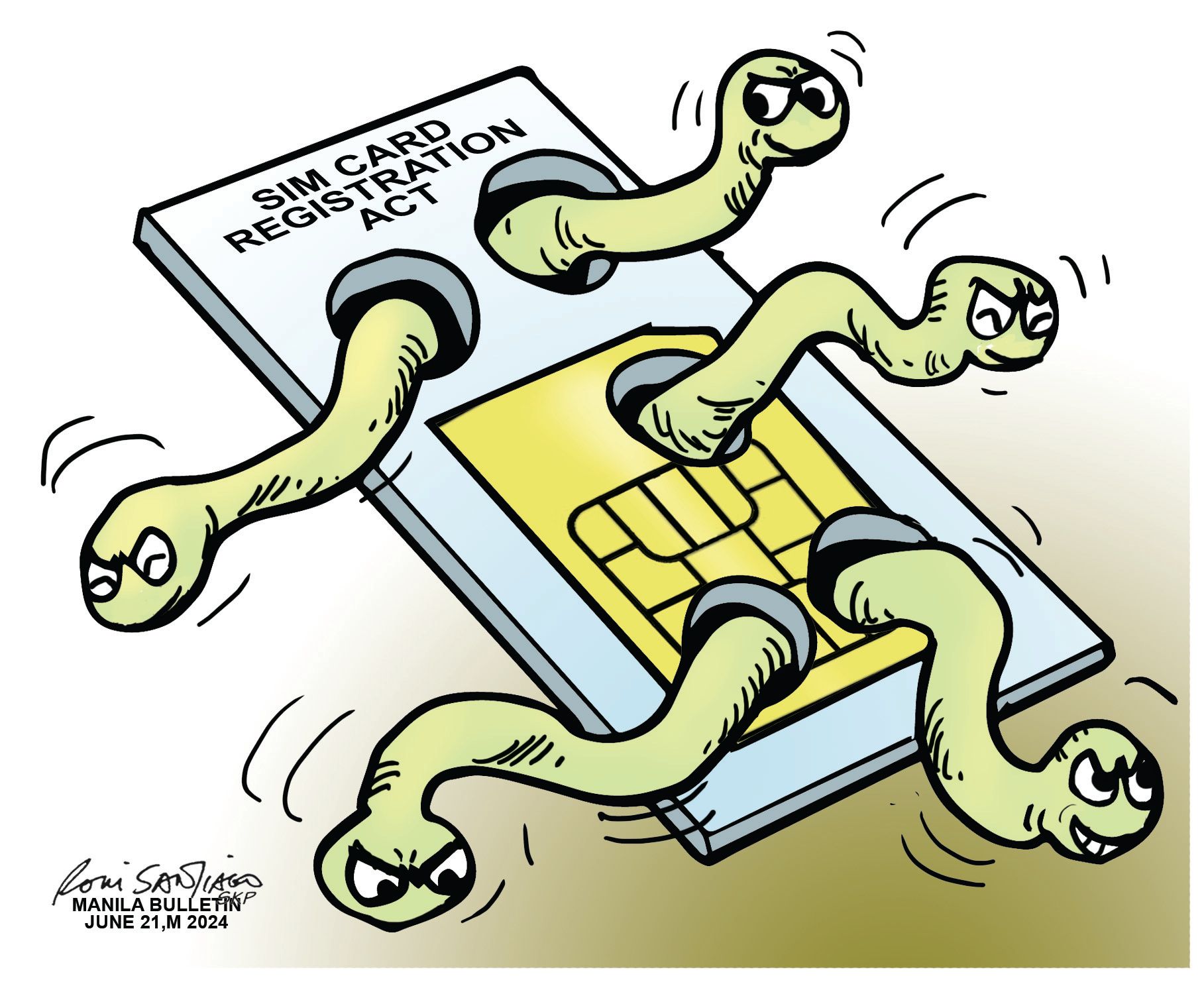
When the SIM Card Registration Act was signed by President Ferdinand R. Marcos Jr. in 2022, it was welcomed with so much optimism with its promise to curb text scams and fraud.
By requiring the registration of subscriber identification module (SIM) cards, the law’s objective is to eliminate the anonymity criminals exploit to perpetrate fraud via mobile phones. However, recent events have exposed significant loopholes in the legislation that need urgent attention.
Despite the implementation of the SIM Card Registration Act, fraudulent mobile phone activities have remained at the same level or have even increased, according to reports.
Criminals continue to exploit gaps in the law to engage in phishing schemes that deceive individuals into disclosing sensitive information. This information is then used to empty bank accounts or commit identity theft, causing significant financial and emotional distress to victims.
SIM card holders continue to receive missed delivery notifications, “is this you?” messages, bank account closure warnings, prize winner notifications, locked debit or credit card warnings, fake IRS [intelligent reflecting surface] messages using official channels, among others. In fact, these fraudulent messages have become more prevalent since the enactment of the measure.
With the prevalence of fraudulent messages, just remember that the next time you receive suspicious texts, avoid responding, clicking links, or calling unknown numbers. Stay vigilant to protect your identity and finances.
To address these fraudulent activities, it is crucial to strengthen verification protocols. Telecommunications companies must adopt more stringent verification processes to prevent accepting false or fictitious information during SIM card registration like one who was able to register a SIM card using a photo of a monkey.
Proposals to limit the number of SIM cards registered under one name make sense as it could make it more difficult for criminals to obtain multiple SIM cards for fraudulent activities.
Strict enforcement of penalties on individuals who sell their registered SIM cards must be implemented.
While the SIM Registration Act is a step toward greater accountability, it’s not a complete solution. Effective implementation requires collaboration among the government, private sector, and citizens
Loopholes and the lackluster enforcement of the new law came to fore following raids on Philippine Offshore Gaming Operators (POGOS) that yielded a number of SIM cards allegedly used to perpetuate crimes.
The National Telecommunications Commission (NTC), the government agency that regulates the sector, acknowledged the problem but it said the SIM Card Registration Act is not a silver bullet, but is one of the most important tools for law enforcement authorities because it provides legal sanctions for SIM-aided offenses.
While the new law is not a panacea, NTC has to do more to address the problem. As Senate President Francis Escudero said, the NTC should explain why they have been ineffective in enforcing the law, instead of simply mouthing excuses.
But let’s face it, the NTC cannot do it alone. Effective implementation requires a concerted effort from the government, private sector, and citizens.
While the SIM Registration Act has potential, addressing loopholes in the SIM Registration Act and enhancing its enforcement mechanisms are crucial in curbing text scams and protecting unsuspecting Filipinos.